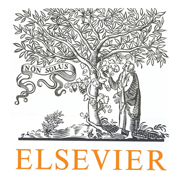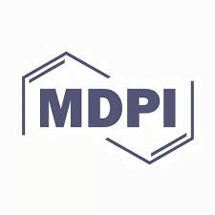دانلود ترجمه مقاله تاثیرات ارزش مصرف غذای محلی بر نگرش گردشگران
| عنوان فارسی |
تاثیرات ارزش مصرف غذای محلی بر نگرش گردشگران، تصور آنها از مقصد و رفتار آنها |
| عنوان انگلیسی |
Effects of tourists’ local food consumption value on attitude, food destination image, and behavioral intention |
| کلمات کلیدی : |
غذای محلی؛ ارزش مصرف؛ نگرش؛ تصور از مقصد؛ صنعت غذایی گردشگری؛ هونگ کونگ |
| درسهای مرتبط | مدیریت جهانگردی و گردشگری |
| تعداد صفحات مقاله انگلیسی : 10 | نشریه : ELSEVIER |
| سال انتشار : 2018 | تعداد رفرنس مقاله : 78 |
| فرمت مقاله انگلیسی : PDF | نوع مقاله : ISI |
|
پاورپوینت :
ندارد سفارش پاورپوینت این مقاله |
وضعیت ترجمه مقاله : انجام شده و با خرید بسته می توانید فایل ترجمه را دانلود کنید |
1. مقدمه 2. فرضیه ها و نظریه های تحقیق 3. روش ها 4. یافته ها و بحث و بررسی 5. دلالت ها 6. نتیجه گیری 7. محدودیت ها و پیشنهاداتی برای تحقیقات آینده

چکیده – با وجود اهمیت درک ارزش مصرف غذا از دیدگاه گردشگران، پژوهشهای کمی بررسی کردهاند که چگونه تجربه غذای محلی در یک کشور، ارزش مصرف از دیدگاه گردشگران را شکل میدهد. این پژوهش تأثیر ارزش مصرف غذای محلی بر دیدگاه و رفتار گردشگران را بررسی میکند. در این پژوهش، پیشینه فرهنگی گردشگران بهعنوان متغیر تعدیلکننده بکار میرود. یافتهها نشان میدهد که ارزش مصرف غذای محلی بهطور موثر نگرش گردشگران نسبت به غذای محلی، تصور آنها از غذای مقصد و رفتار آنها را توصیف میکند. علاوه بر آن، پیشینه فرهنگی گردشگران تا حدی در رابطه بین سازهها بهعنوان تعدیلکننده عمل میکند. این پژوهش، اولین پژوهشی است که بهطور تجربی تئوری ارزش مصرف را در زمینه تجربه گردشگران از غذای محلی بکار بردهاست. این پژوهش، دیدگاهی درمورد راهبردهای بازاریابی مناسب برای رستوران و صنایع غذایی گردشگری فراهم میسازد و پیشنهادات کاربردی برای سازمان مدیریت مقصد گردشگری (DMO) جهت استفاده از غذای محلی بهعنوان یک ابزار بازاریابی در کشور ارائه میدهد. مقدمه: در سالهای اخیر، صنعت غذای گردشگری از لحاظ اقتصادی اهمیت زیادی پیدا کردهاست. غذای محلی بیانگر هویت ملی، منطقهای و شخصی است و میتواند بر تصور افراد از مقصد تأثیر بگذارد (بسیر 1998، چانگ 2010، هندرسون 2009). بهمنظور درک دیدگاه گردشگران و رفتار آنها در آینده لازم است بدانیم که چگونه تجربه غذاهای محلی ارزش مصرف از دیدگاه گردشگران را شکل میدهد. بازاریابان غذای گردشگری بهمنظور تبلیغ غذای خود، باید همه روشهای ممکن جهت بهبود ارزش مصرف غذای محلی را شناسایی کنند (هال 2003، مک 2012). با این حال، پژوهشهای کمی تأثیر ارزش مصرف غذای محلی بر رفتار گردشگران را بررسی کردهاند. بهطور ویژه، رابطه متقابل بین ارزش مصرف غذای محلی، نگرش گردشگران نسبت به غذای محلی، تصور آنها از غذای مقصد و رفتار آنها بررسی نشدهاست. علاوه بر آن، تأثیر ارزش مصرف غذای محلی بر ابعاد ذکر شده باید با توجه به پیشینه فرهنگی گردشگران بررسی شود، زیرا دیدگاه گردشگران تا حد زیادی تحتتأثیر فرهنگ غذایی آنها است. با این وجود، پژوهشهای کمی تأثیر پیشینه فرهنگی بر دیدگاه گردشگران نسبت به غذای محلی را بررسی کردهاند. بنابراین، این پژوهش تأثیر ارزش مصرف غذای محلی بر رفتار آینده گردشگران را از طریق دیدگاه آنها نسبت به غذای محلی و تصور آنها از غذای مقصد بررسی میکند و اثر تعدیلکننده پیشینه فرهنگی گردشگران را در رابطه بین ارزش مصرف غذای محلی برای گردشگران، دیدگاه آنها نسبت به غذای محلی، تصور آنها از غذای مقصد و رفتار آنها ارزیابی میکند. نمونه این پژوهش شامل گردشگران بینالمللی در هونگ کونگ است، زیرا هونگ کونگ اخیراً بهعنوان یکی از «شهرها با بهترین غذای دنیا» انتخاب شدهاست (گردشگر 2016). بررسی ارزش مصرف غذای محلی برای گردشگران و تأثیر آن بر دیدگاه گردشگران نسبت به غذای محلی، تصور آنها از غذای مقصد و رفتار آنها در هونگ کونگ به توسعه بیشتر صنایع غذایی و خدمات مربوط به گردشگری در هونگ کونگ و مکانهای دیگر کمک میکند.
Despite the importance of understanding food consumption value from tourists’ perspectives, few studies have explored how experiencing local food in a destination shapes tourists’ consumption value. This study explores the effect of tourists’ local food consumption value on their perceptions and behaviors. Tourists’ cultural background is used as a moderating variable. The findings show that tourists’ local food consumption value effectively explains tourists’ attitudes toward local food, food destination image, and behavioral intentions. In addition, the cultural background of tourists partially moderates the relationships between the proposed constructs. This study is the first empirical application of consumption value theory to the context of tourists’ local food experiences. It provides insights into appropriate marketing strategies for the restaurant and food tourism industries and offers practical suggestions to destination marketing organizations (DMOs) for using local food as a destination marketing tool. Introduction: In recent years, food tourism has become economically significant. Local food expresses national, regional, and personal identity, and can enhance the image of a destination (Bessière, 1998, Chang et al., 2010, Henderson, 2009). Identifying how experiencing local food shapes tourists’ consumption value is essential to understanding tourists’ perceptions of a destination and their future behaviors. To promote their local food, food tourism marketers must discover every possible method for improving tourists’ local food consumption value (Hall et al., 2003, Mak et al., 2012). However, few studies have examined the impact of tourists’ local food consumption value on tourist behaviors. Particularly, the interrelationships between tourists’ local food consumption value, attitudes toward local food, food destination image, and behavioral intention remain unexplored. Furthermore, the effects of tourists’ local food consumption value on the aforementioned dimensions should be examined according to tourists’ cultural background, as food perception is greatly influenced by the tourists’ own food culture. Nevertheless, few studies have attempted to examine the effects of cultural background on tourists’ perceptions of local food. Therefore, this study examines the impact of tourists’ local food consumption value on their future behaviors via their attitudes toward local food and food destination image, and examines the moderating effect of tourists’ cultural background on the relationships between tourists’ local food consumption value, attitudes toward local food, food destination image, and behavioral intentions. The sample consists of international tourists to Hong Kong, as Hong Kong was recently ranked as one of the “World’s best food cities: Readers’ choice awards 2014” (Traveler, 2016). Testing tourists’ local food consumption value and examining its effects on local food attitude, food destination image, and their behavioral intention in the Hong Kong context contributes to the further development of the food and tourism-related service industry in Hong Kong and other destinations.
ترجمه این مقاله در 26 صفحه آماده شده و در ادامه نیز صفحه 14 آن به عنوان نمونه قرار داده شده است که با خرید این محصول می توانید، فایل WORD و PDF آن را دریافت نمایید.
محتوی بسته دانلودی:
PDF مقاله انگلیسی ورد (WORD) ترجمه مقاله به صورت کاملا مرتب (ترجمه شکل ها و جداول به صورت کاملا مرتب)




دیدگاهها
هیچ دیدگاهی برای این محصول نوشته نشده است.